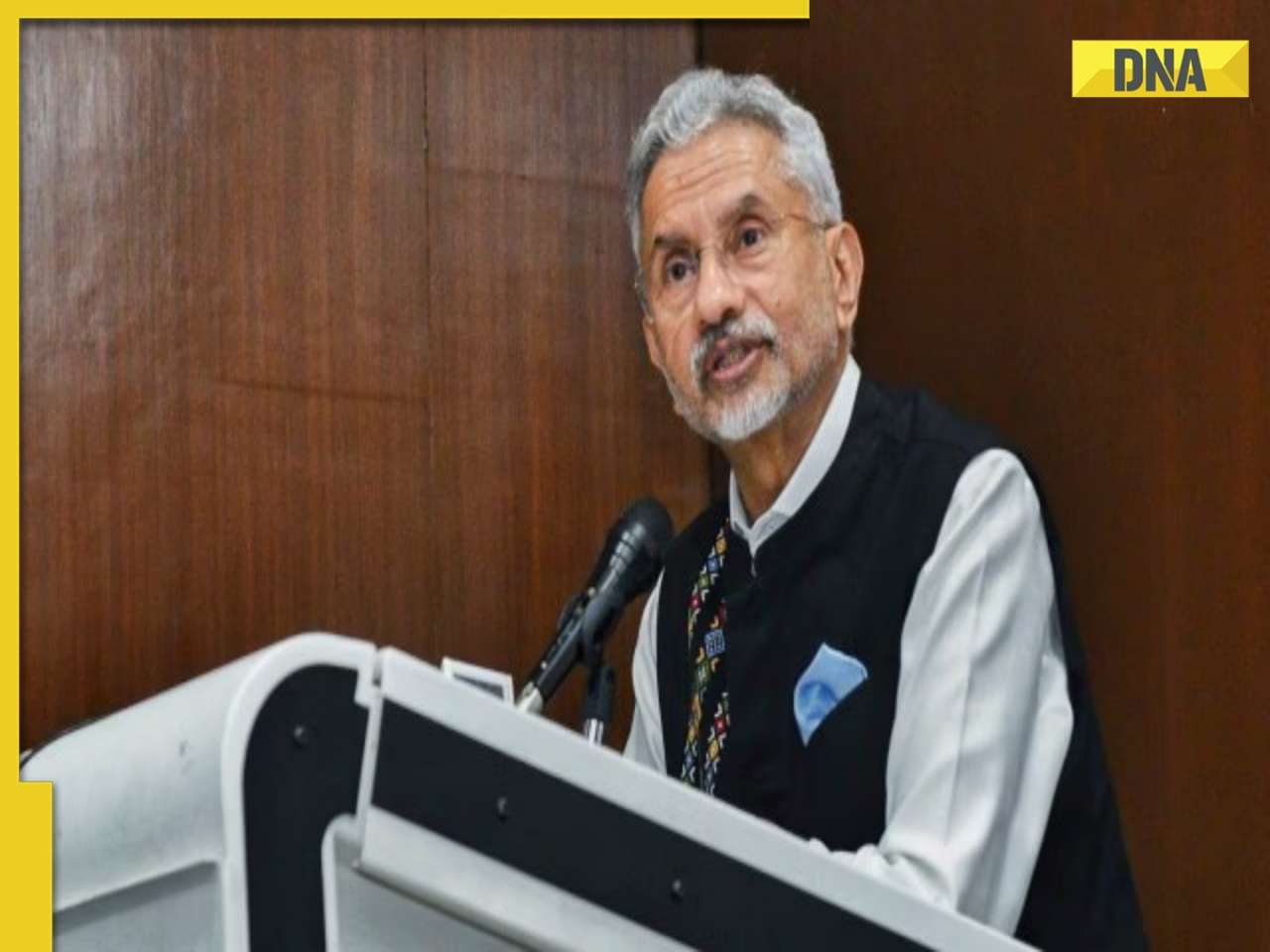Mauritius, called the Pearl of the Indian Ocean, is one of the planet's most spectacular island getaways. But it's also the laidback charm of its people who rise and set with the sun that is irresistible.
I have no more connection to Mauritius than an airline ticket. Yet given half a chance to re-visit, I'd do so in the blink of an eye.
Perhaps my affection was initially born of the allure of being let loose upon a green-and-gold tropical island in the middle of a cobalt blue ocean. But although fleecy white clouds racing along a turquoise sky may be the frame in which this story is set, this narrative is anything but an ode to clouds.
My driver Clarel saw to that. The first thing he said as we drove quietly past the Black River Gorges National Park with its wild expanse of forest, into the multicolored mineral-rich volcanic soil of Chamarel was, "Unusual natural attractions are delightful, but they are not the soul of Mauritius." I pause mid-swoon, peer closely at Clarel, a man as distinctly introspective as the quieter southern side of the island, and wait for him to finish.
He continues, "You, I can tell, will write poetry to the heartbeat you feel at the mouth of the extinct volcanic crater of Trou Aux Cerfs. Dance like Alice finding her wonderland upon sighting the giant water lilies in the central pond at the Pamplemousses Botanical gardens. And always have stories to tell of your experience of walking with lions and zip lining at Casela Nature Park. But that's the exceptional Mauritius, not the rule. The flesh and blood and hair and skin of Mauritius, not the heart nor soul of the place."
I rise to the bait. "Show me the soul of Mauritius as you see it, show me Mauritius of the everyday." That's all the encouragement Clarel needs. He spins the car around and begins driving in the direction of Le Pouce, a prominent thumb-shaped peak that makes a great introduction to walking here. I think he's going to stop at the foot of the mountain, but he drives beyond to where a group of men sit in a local town hall, playing cards and drinking beer. They don't ask me who I am or where I'm from, just offer me a seat and pass me a glass. The man at the head of the table attempts to put me at ease.
He says, "I'm a partly-French Catholic, I look like a Muslim, I have some remote South-Indian ancestry. With a little bit of everything, I'm the typical Maurtian.”
Everyone in the group has similarly complex genealogies. The colonial history and the blend of various settlers and races have been established. The ice broken. And I get my first glimpse into how enveloping and laid-back the island culture really is.
The revival of Sega
The conversation turns to the lively Sega dance that inevitably makes its way into the script of every travelogue set here. I explain to the group of card players that as I hop from one luxury beach resort to the next, I am generally treated to a nightly performance of this high-energy dance.
Jean Claude Rai puts his beer mug down with an emphatic thud and says, "Globalisation is in some ways responsible for this wide-scale revival of Sega. What was set aside for many years is what travellers from all over the world would now like to see. And so from being neglected, Sega has found its way back into every hotel's entertainment program."
As the sun begins to fall, we move on. Clarel talks and drives. I photograph, wave to the men and women returning from a hard day's work in the sugar cane fields, and listen to his stories. He talks about Sundays being family day in Mauritius — which usually implies a collective outing to the beach, cohesiveness of family ties on the island. The rhythms of life that follow the rhythms of nature, a people who rise and set with the sun. His romance with a woman who worked in the sugar cane fields.
The next day, in between Clarel's stories we pause to complete the agenda on my itinerary: Swim with dolphins. Check. Submarine ride with the Blue Safari service. Check. Lunch at Creole mansion Eureka. Check. Explore history of Mauritius, and the rum trade at the excellent little museum, L'Aventure du Sucre.
Check. Check. We've even inserted a slot for lazing at a casuarina-fringed beach. Here I meet a French couple just back from the special undersea walk — wearing diver's helmet and weight belt — that Mauritius is so famous for. They've moved here from Paris, because on a short visit here, the sentiment of Mark Twain ran through their heads: "You gather the idea that Mauritius was made first and then heaven, and that heaven was copied after Mauritius." I empathise entirely. I remember feeling like this as I stood at the edge of the beach one deserted Tuesday evening: the azure sea wall, the waves, the liquid gold sunset and me.
Throbbing city market
Crossing into Port Louis is like crossing the border from an island paradise into a vital, organic and multicultural throbbing city. The Caudan waterfront with its French colonial architecture, casino and multi-cuisine restaurants may have gone Disneyesque and trendy, but the rest preserves its old-world charm. China Town for one — with its colourful quarters, colonial balconied buildings and street stalls selling everything from Chinese herbs to potted plants — still vibrates with life.
We make our way from the bustling Central Market to Aapravasi Ghat, the most important surviving manifestation of the indentured labour system that existed in the colonial world in the 18th and 19th century towards the Blue Penny Museum which has far wider scope than the name suggests, exploring not just stamps but also the history of the islands settlement and the colonial period.
A crowd is streaming past us and although the statue of Paul and Virginny, the islands' version of Romeo and Juliet, housed inside the museum is superbly life-like, I can't believe it inspires this devotion. Clarel says, with a grin, of the people who rush pass,
"They're off to pay homage at the shrine of Father Laval who devoted his life to the evangelisation of freed slaves. They're hoping he'll perform a miracle in their lives. Tonight you must come with me to witness faith's big parade."
On the flight home I realise Clarel was right. I didn't find the soul of Mauritius in the sea, or in the abundantly available Dodo souvenir keychains on sale. I found it in the extended hand of a warm Creole girl who invited me to dance Sega on a beach. I found it in the Creole mama, who invited me into her home for a home-cooked curri poisson or spicy fish curry — typical Indian fusion food that makes its presence strongly felt here. And if all this sounds too good to be true, I make no apologies. I don't know how to impart enthusiasm other than enthusiastically.
![submenu-img]() 'They unilaterally took some measures': EAM Jaishankar on new Nepal 100 rupee currency
'They unilaterally took some measures': EAM Jaishankar on new Nepal 100 rupee currency![submenu-img]() Meet Ice Cream Lady of India, who built Rs 6000 crore company, started with small investment of Rs…
Meet Ice Cream Lady of India, who built Rs 6000 crore company, started with small investment of Rs…![submenu-img]() ‘Canada a rule-of-law country’: PM Trudeau after 3 Indian arrested over Hardeep Nijjar's murder
‘Canada a rule-of-law country’: PM Trudeau after 3 Indian arrested over Hardeep Nijjar's murder![submenu-img]() Viral video: Specially-abled girl’s energetic dance to Bollywood song wows internet, watch
Viral video: Specially-abled girl’s energetic dance to Bollywood song wows internet, watch![submenu-img]() 'Baap re baap': Imtiaz Ali reveals Diljit Dosanjh was scandalised by old women's 'vulgar' improvisation on Chamkila set
'Baap re baap': Imtiaz Ali reveals Diljit Dosanjh was scandalised by old women's 'vulgar' improvisation on Chamkila set![submenu-img]() DNA Verified: Is CAA an anti-Muslim law? Centre terms news report as 'misleading'
DNA Verified: Is CAA an anti-Muslim law? Centre terms news report as 'misleading'![submenu-img]() DNA Verified: Lok Sabha Elections 2024 to be held on April 19? Know truth behind viral message
DNA Verified: Lok Sabha Elections 2024 to be held on April 19? Know truth behind viral message![submenu-img]() DNA Verified: Modi govt giving students free laptops under 'One Student One Laptop' scheme? Know truth here
DNA Verified: Modi govt giving students free laptops under 'One Student One Laptop' scheme? Know truth here![submenu-img]() DNA Verified: Shah Rukh Khan denies reports of his role in release of India's naval officers from Qatar
DNA Verified: Shah Rukh Khan denies reports of his role in release of India's naval officers from Qatar![submenu-img]() DNA Verified: Is govt providing Rs 1.6 lakh benefit to girls under PM Ladli Laxmi Yojana? Know truth
DNA Verified: Is govt providing Rs 1.6 lakh benefit to girls under PM Ladli Laxmi Yojana? Know truth![submenu-img]() Streaming This Week: Heeramandi, Shaitaan, Manjummel Boys, latest OTT releases to binge-watch
Streaming This Week: Heeramandi, Shaitaan, Manjummel Boys, latest OTT releases to binge-watch![submenu-img]() Remember Ayesha Kapur? Michelle from Black, here's how actress, nutrition coach, entrepreneur looks after 19 years
Remember Ayesha Kapur? Michelle from Black, here's how actress, nutrition coach, entrepreneur looks after 19 years![submenu-img]() Remember Heyy Babyy's cute 'Angel' Juanna Sanghvi? 20 year-old looks unrecognisable now, fans say 'her comeback will...'
Remember Heyy Babyy's cute 'Angel' Juanna Sanghvi? 20 year-old looks unrecognisable now, fans say 'her comeback will...'![submenu-img]() In pics: Arti Singh stuns in red lehenga as she ties the knot with beau Dipak Chauhan in dreamy wedding
In pics: Arti Singh stuns in red lehenga as she ties the knot with beau Dipak Chauhan in dreamy wedding![submenu-img]() Actors who died due to cosmetic surgeries
Actors who died due to cosmetic surgeries![submenu-img]() DNA Explainer: Why Harvey Weinstein's rape conviction was overturned, will beleaguered Hollywood mogul get out of jail?
DNA Explainer: Why Harvey Weinstein's rape conviction was overturned, will beleaguered Hollywood mogul get out of jail?![submenu-img]() What is inheritance tax?
What is inheritance tax?![submenu-img]() DNA Explainer: What is cloud seeding which is blamed for wreaking havoc in Dubai?
DNA Explainer: What is cloud seeding which is blamed for wreaking havoc in Dubai?![submenu-img]() DNA Explainer: What is Israel's Arrow-3 defence system used to intercept Iran's missile attack?
DNA Explainer: What is Israel's Arrow-3 defence system used to intercept Iran's missile attack?![submenu-img]() DNA Explainer: How Iranian projectiles failed to breach iron-clad Israeli air defence
DNA Explainer: How Iranian projectiles failed to breach iron-clad Israeli air defence![submenu-img]() 'Baap re baap': Imtiaz Ali reveals Diljit Dosanjh was scandalised by old women's 'vulgar' improvisation on Chamkila set
'Baap re baap': Imtiaz Ali reveals Diljit Dosanjh was scandalised by old women's 'vulgar' improvisation on Chamkila set![submenu-img]() This actor, who worked with Karan Johar and Farhan Akhtar, gave superhit shows, saw failed marriage, killed himself at..
This actor, who worked with Karan Johar and Farhan Akhtar, gave superhit shows, saw failed marriage, killed himself at..![submenu-img]() Did you know Ranveer Singh's grandmother was popular actress? Worked with Raj Kapoor; her career affected due to...
Did you know Ranveer Singh's grandmother was popular actress? Worked with Raj Kapoor; her career affected due to...![submenu-img]() India's highest-paid TV actress began working at 8, her Bollywood films flopped, was seen in Bigg Boss 1, now charges...
India's highest-paid TV actress began working at 8, her Bollywood films flopped, was seen in Bigg Boss 1, now charges...![submenu-img]() Shreyas Talpade wonders if his heart attack was due to Covid vaccine: 'We don’t know what we have taken inside...'
Shreyas Talpade wonders if his heart attack was due to Covid vaccine: 'We don’t know what we have taken inside...'![submenu-img]() IPL 2024: Faf du Plessis, Virat Kohli help Royal Challengers Bengaluru defeat Gujarat Titans by 4 wickets
IPL 2024: Faf du Plessis, Virat Kohli help Royal Challengers Bengaluru defeat Gujarat Titans by 4 wickets![submenu-img]() IPL 2024: Why is Sai Kishore not playing today's RCB vs GT match?
IPL 2024: Why is Sai Kishore not playing today's RCB vs GT match?![submenu-img]() 'Mumbai Indians ki kahani khatam': Ex-India star slams Hardik Pandya after MI's loss to KKR at Wankhede
'Mumbai Indians ki kahani khatam': Ex-India star slams Hardik Pandya after MI's loss to KKR at Wankhede![submenu-img]() LSG vs KKR, IPL 2024: Predicted playing XI, live streaming details, weather and pitch report
LSG vs KKR, IPL 2024: Predicted playing XI, live streaming details, weather and pitch report![submenu-img]() LSG vs KKR IPL 2024 Dream11 prediction: Fantasy cricket tips for Lucknow Super Giants vs Kolkata Knight Riders
LSG vs KKR IPL 2024 Dream11 prediction: Fantasy cricket tips for Lucknow Super Giants vs Kolkata Knight Riders![submenu-img]() Viral video: Specially-abled girl’s energetic dance to Bollywood song wows internet, watch
Viral video: Specially-abled girl’s energetic dance to Bollywood song wows internet, watch![submenu-img]() Viral video: Man educates younger brother about mensuration, internet is highly impressed
Viral video: Man educates younger brother about mensuration, internet is highly impressed![submenu-img]() Girl's wedding dance to Haryanvi song interrupted by mother in viral video, internet reacts
Girl's wedding dance to Haryanvi song interrupted by mother in viral video, internet reacts![submenu-img]() Viral video: Man fearlessly grabs dozens of snakes, internet is scared
Viral video: Man fearlessly grabs dozens of snakes, internet is scared![submenu-img]() This mysterious mobile phone number was suspended after three users...
This mysterious mobile phone number was suspended after three users...

















































)
)
)
)
)
)